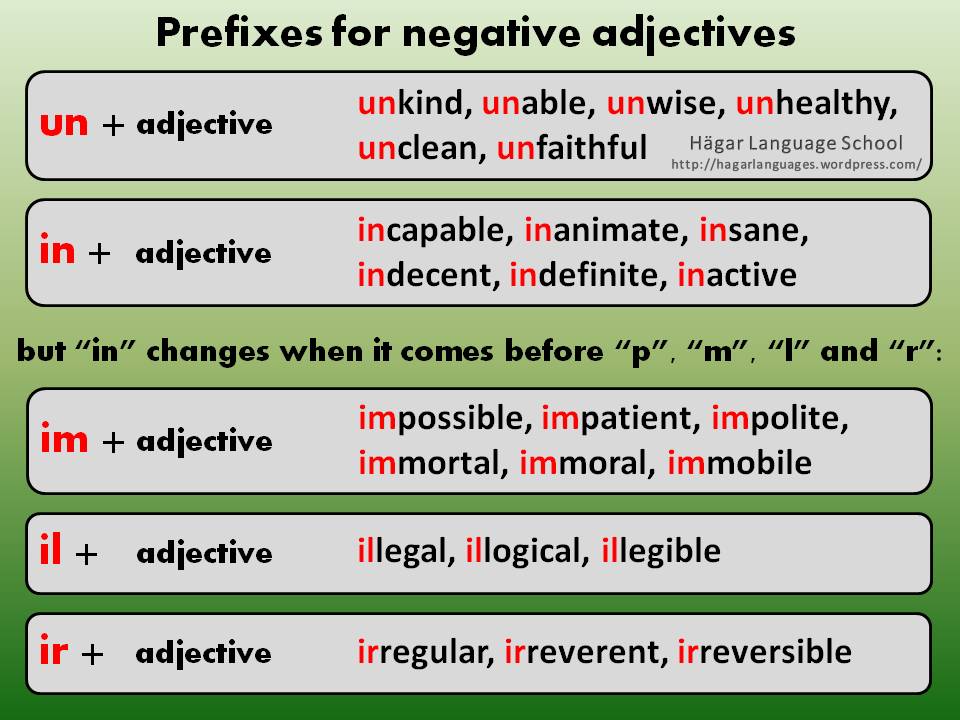Unfortunately, forming negations is a lot more complicated and confusing than native speakers of English realize. For clarification, a negation, according to the Oxford English Dictionary, is a “contradiction or denial of something (…), typically involving the use of a negative word (…) or a word or affix with negative force.”
To negate a word should be easy.
If you guessed important is the opposite of portant just because improper is the opposite of proper—sorry to disappoint you, but you guessed wrong!
In English, we say disrespectful instead of unrespectful, improper instead of unproper, illogical and not unlogical.
It seems completely unlogical! How is a non-native speaker of English supposed to master the art of negation?
The English Language is not as easy as many people claim. But fear not. I have found the Holy Grail of negations! It is to learn every itsy-bitsy form by heart…I’m kidding.
Click on this link and see for yourself (http://www.elearnenglishlanguage.com/blog/learn-english/grammar/negative-prefixes/)
There are actual rules, can you imagine?
When a friend of mine found this page, after I was constantly complaining how annoying the English language can be and how complicated and illogical it is, I was simply flabbergasted.
Not only does it explain when to use what prefix, it also talks about the exceptions mentioned above.
Unfortunately, many negations still have to be learned by heart and you will not get around that, but there is light at the end of the tunnel.
I always say the first 85% of the English language is easy-peasy-lemon-squeezy; however, the remaining 15%—don’t ask! It is difficult and hard and sometimes nerve-wracking.
But at the end of the day, if you put effort in it, be assured, you will reap mastery!
You can find help online...

…but also from your friends in the Writing Center we feel your pain.
Don’t give up, English is such a beautiful language that is worth being studied and mastered!
So how do you feel about prepositions? At one time in the history of the English language, the language didn't have prepositions. You can thank the Vikings for that change along with plural being indicated by an -s.
ReplyDelete